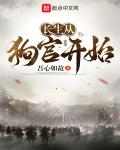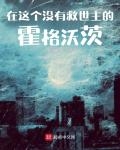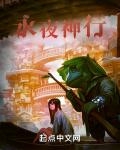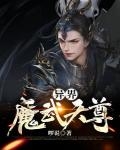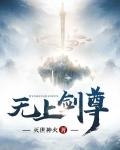Chapter 57 Personal Intervention
The three great doctors of Jian'an.
Hua Tuo, Zhang Zhongjing, and Dong Feng, who is said to have become an immortal.
Hua Tuo is the most famous among these three.
This does not mean that his medical skills were the highest. On the contrary, his influence on the entire history of medical development was far less than that of Zhang Zhongjing.
The reason for his high fame is that it is recorded in history books, and the concepts of surgery he proposed were very advanced and legendary, so he has always been regarded as a miracle doctor.
Especially the part in the vernacular novel where he wanted to perform a craniotomy on Cao Cao, has caused a lot of discussion.
As for Dong Feng, according to the "Biography of Immortals", "He lived in the mountains and treated people for free. He cured people with serious illnesses and asked them to plant five apricot trees, and those with mild illnesses to plant one tree. Over the years, he planted more than 100,000 apricot trees, which became a dense forest..."
That is, according to Dong Feng's legend, people use "Xinglin" to praise doctors, and ancient doctors often regard themselves as "people in Xinglin".
The doctor in troubled times that Su Che was imitating at this moment was not Hua Tuo, nor Dong Feng, but Zhang Zhongjing, who was known as the "Medical Saint".
To be called a saint in a certain field, one must have reached the pinnacle.
However, when he was alive, Zhang Zhongjing's reputation was not high, and there was not even a word about him in the official history.
His pioneering work, Treatise on Febrile and Miscellaneous Diseases, was rarely discussed until the Tang and Song dynasties, when it gradually became popular.
It was during this period that he was named the "Medical Saint".
This was a person who was not very famous during his lifetime, but was canonized as a saint many years after his death.
At first, Su Che was not sure of this person's true identity, but when the sentence [ To cure the illness of the king and relatives, to save the poor and humble, to protect the body and nourish their lives] appeared, Su Che immediately confirmed this person's identity.
"Let me simulate Zhang Zhongjing's life..."
“If his original history is reproduced, it is unlikely to gain his approval.”
"Because I already have a Heroic Spirit."
"Should I become more famous right then? Or..."
Su Che frowned, thinking seriously about how to break the impasse. Anyway, he should not be able to continue the rebellion this time...
At this moment, the words in the book had begun to evolve. Su Che quickly came back to his senses and looked carefully at the words that continued to appear.
[You were born into a declining bureaucratic family.]
[Your father was once an official in the imperial court. Because of your privileged family background, you had the opportunity to learn to read and write since childhood and to be exposed to various literary classics.]
[You learned to read at the age of three, learned poetry at the age of five, and had literary talent at the age of ten.]
[You read the story of Bian Que's diagnosis of Duke Huan of Qi in history books.]
[You are very envious of Bian Que's style of diagnosis by observation, and you keep it in mind.]
[It was from this point on that you began to have the idea of becoming a doctor.]
[When you were ten years old, you confessed to your father your ambition, which was not to serve in the court, but to serve the people.]
[Your father severely criticized your idea and told you to study hard and not touch medical books anymore.]
[Faced with your father's determination, what is your choice...]
[One, swear to die and refuse to obey. Two, accept it calmly. Three, study it secretly. Four, intervene personally. ]
Looking at these options, Su Che thought for a moment and did not make a decision in a hurry.
Because all three options are a bit unreliable.
First, he would never obey, which is the most consistent with the original historical development, because Zhang Zhongjing must have gone on the path of studying medicine, which is the closest, but the problem is that it is too extreme and may easily lead to punishment from his father, but it is also uncertain...
As for option two, accept that this is the least likely option.
Third, conducting research secretly is also unreliable.
As the saying goes, what you learn from books is always shallow, and you can only truly understand it by doing it yourself.
If you continue to study secretly, it will be impossible to grow quickly and reach the level of a medical saint.
Here comes the problem.
Should I choose one of these three that seems more reliable, or should I choose number four and intervene personally?
Can you really do it better if you do it yourself?
Su Che was a little hesitant, but he also knew that indecision was a taboo.
Since none of these three options can satisfy him, then he'll do it his own way!
Even if I cannot gain the recognition of the heroic spirit Zhang Zhongjing in the end, at least I can live up to my heart and will not regret it!
If he hesitates here and dares not make a choice for a long time, that is definitely not his style!
As soon as this thought came to his mind, Su Che chose number four without hesitation and intervened personally!
When she opened her eyes again, she saw a middle-aged man in a long gown, holding a ruler in his hand, staring at her, with anger still on his face.
"Do you understand what I just said?" The middle-aged man was Zhang Zhongjing's father, Zhang Zonghan.
Of course, Zhang Zhongjing was not called this at that time. His name was Zhang Ji, with his surname Zhang, given name Ji, and courtesy name Zhongjing. He was only ten years old at the time, so he did not have this name yet.
The word "Zhongjing" implies potential ability, erudition, good luck, high respect and a bright future.
This was Zhang Zhongjing's father's expectation for his life.
Su Che looked up at his father and blinked: "I still don't understand, can you say it again?"
As soon as these words were spoken, Zhang Zonghan's eyes widened immediately. He raised the ruler in his hand and was about to hit him, wanting to cook a side dish for Su Che on the spot.
Su Che quickly shouted: "I understand, kid!"
Zhang Zonghan stopped and stared at Su Che and asked, "What do you understand?"
Su Che slowly raised his head. As the first prime minister under the constitutional monarchy of the Han Empire, he was almost the de facto emperor. This made him understand the nature of power, the political flaws of the Eastern Han Dynasty, and the unspoken rules of many things, as well as some hidden stories.
So, Su Che knew how to convince his father.
Su Che said, "I understand my father's intention, but I also have my own ideas."
"Oh? What are you thinking? You want to be a doctor? How can this be?" Zhang Zonghan snorted coldly.
In this era, society was divided into distinct classes, including scholars, farmers, workers, and merchants. Doctors belonged to the worker class. As a father, Zhang Zonghan naturally did not want his son to go astray and become a lowly doctor.
Even Hua Tuo, another great doctor of the same era, once lamented: "I was originally a scholar, but I made a living by practicing medicine, and I always regret it."
Even if they have established a reputation for their medical prowess, they still often regret becoming a doctor.
This is the current situation of the medical profession.
With the industry prospects so bleak, how could a father let his son jump into the fire?
In fact, the status of medicine was not like this at the beginning.
In the pre-Qin period, "witchcraft" and "medicine " were combined, and the mysterious nature gave medicine a lofty status.
In the early Western Han Dynasty, "witchcraft" and "medicine" were separated, and the status of doctors declined slightly but they were still respected.
But starting from the middle of the Western Han Dynasty, everything took a turn. Emperor Wu of Han abolished all schools of thought and respected Confucianism alone, which made Confucianism the orthodoxy. Gradually, doctors changed from "scholars" to "workers".
By the Eastern Han Dynasty, medical skills had been classified as prescriptions and were looked down upon.
Even in the later Tang Dynasty, when the improvement of the imperial examination system, the open literary atmosphere and the strong national strength made the Tang Dynasty known as the heyday of the centralized dynasty, medicine was still regarded as a "lowly profession".
When it all comes down to it, the plate of the "scholar-officials" is only so big, and the positions at the top of the pyramid are limited. By squeezing the doctors out from here, they can occupy the doctors' original social status and enjoy more social resources.
Su Che was very clear about this, but he did not change his mind. Sometimes, even though he knew there were mountains of swords and seas of fire ahead, he still moved forward without hesitation. Only in this way could he fulfill his ideals and save more innocent people.
Su Che looked up at his father and said seriously, "Father, calm down and listen to me."

